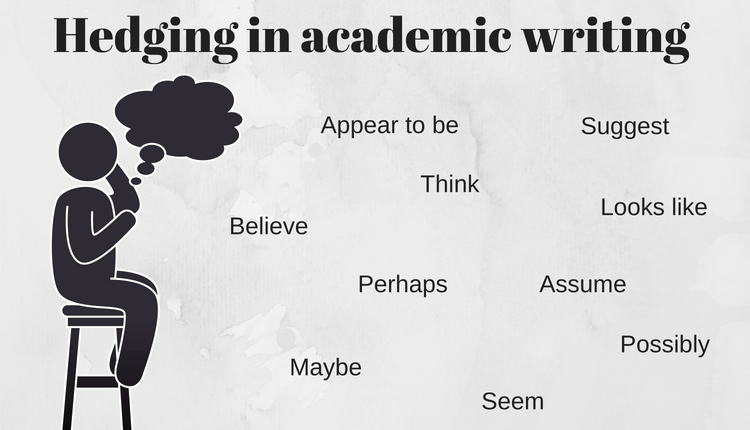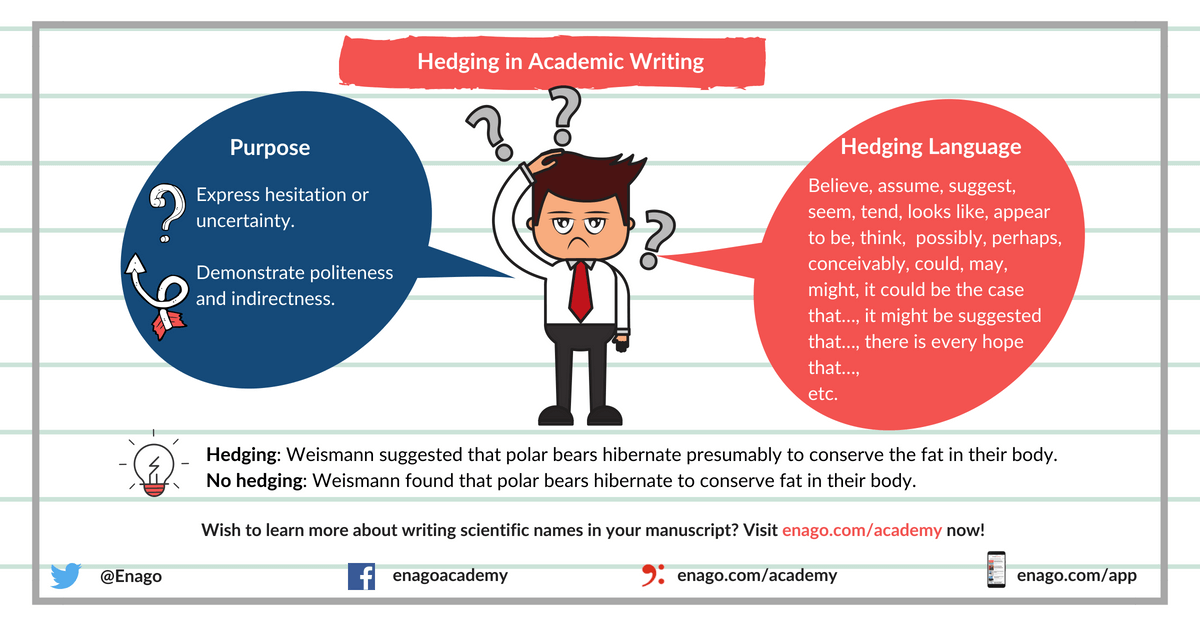What Is Hedging in Academic Writing?

In academic writing, precision and clarity in language is important. Ensuring a nuanced balance between certainty and caution can only be achieved by the strategic use of language; also called as hedging.
What is Hedging
Hedging is the use of linguistic devices to express hesitation or uncertainty as well as to demonstrate politeness and indirectness. It holds significance in academic writing because it is prudent to be cautious in one’s statements so as to distinguish between facts and claims.
What is the Use of Hedging
People use hedged language for several different purposes but perhaps the most fundamental are the following:
- To minimize the possibility of another academic opposing the claims that are being made
- To conform to the currently accepted style of academic writing
- To enable the author to devise a politeness strategy where they are able to acknowledge that there may be flaws in their claims
Types of Hedging
Following are a few hedging words and phrases that can be used to achieve this.
- Introductory verbs – seem, tend, look like, appear to be, think, believe, doubt, be sure, indicate, suggest
- Certain lexical verbs – believe, assume, suggest
- Modal Adverbs – possibly, perhaps, conceivably
- That clauses – It could be the case that…, it might be suggested that…, there is every hope that…
Here are some examples to understand the purpose of hedging.

Consider the following hedging language examples:
- It may be said that the commitment to some of the social and economic concepts was less strong than it is now.
- The lives they chose may seem overly ascetic and self-denying to most women today.
In the first statement, the commitment to some of the social and economic concepts was less strong than it is now while in the second one, the lives they chose seem overly ascetic and self-denying to most women today.

A crucial advantage in academia is that studies are often interpreted from multiple perspectives. This inherent openness leaves room for improvement and development in most fields of study.
Think you know what is hedging in academic writing and how to use it? Share your knowledge in the form of blog posts or opinion pieces at Enago Academy’s Open Platform.









thank you !
great and things are clear and direct no complications, plus very helpeful.
Thanks!
very informative
This appears to be insightful and educative.